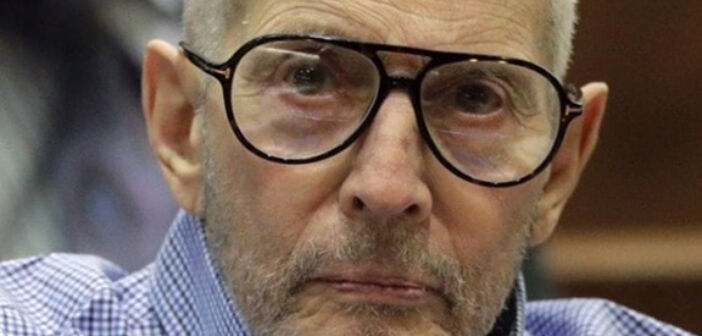The highlights of Robert Durst’s life can be summed up in his own words: “What the hell did I do? Killed them all, of course.”
Durst, a 1965 Lehigh alumnus, businessman, former Brown and White business manager and alleged serial killer is on trial at the age of 78, Reuters reported.
With both an HBO documentary series and movie based on his life, Durst might hold a high rank as one of Lehigh’s most infamous alumni.
Durst was accused of shooting his longtime best friend Susan Berman in the back of the head at her California home.
After seven and a half hours of deliberation, Durst has been convicted of first-degree murder.
The jury found that Durst intentionally shot his late confidant, Susan Berman, due to her knowledge of his connection to a criminal disappearance of his first wife.
NPR reported the jury decided Durst was at the scene of the crime, connected his handwriting to that of an anonymous note detailing the placement of Berman’s dead body and that the audio recordings and testimony of his numerous lies and confessions were damning evidence.
The New York Times quoted Habib Balian, a prosecuting attorney delivering the closing statement, by restating Durst’s own confession.
“The case can be summed up in nine simple words,” Balian said. “‘It was her or me. I had no choice.’ That says it all.”
His guilty verdict comes more than 20 years after the killing as he now faces the possibility of a lifetime in prison. CNN says a judge is set to sentence him in about a month.
It is thought Durst allegedly killed Berman over information she knew about the disappearance of his first wife, Kathleen McCormack Durst, who went missing in 1982.
Durst was acquitted of murder charges in 2003 regarding the death of Morris Black, Durst’s neighbor.
The trial began two weeks ago and has included evidence such as recordings from the documentary series, “The Jinx,” and film, “All Good Things.”
Additional evidence has consisted of a latex mask used by Durst to disguise himself and images of soup: one with a singular cockroach and another infested with them to illustrate the effect of multiple lies.
Lying is something that Durst, himself, admitted to doing several times. The narrative told by the prosecution heavily relied on this notion and recording references.
The defense for Durst attempted to downplay the significance of lying compared to murder and discredits his recorded confession in “The Jinx.”






Comment policy
Comments posted to The Brown and White website are reviewed by a moderator before being approved. Incendiary speech or harassing language, including comments targeted at individuals, may be deemed unacceptable and not published. Spam and other soliciting will also be declined.
The Brown and White also reserves the right to not publish entirely anonymous comments.